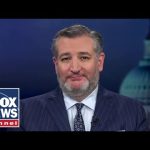President Donald Trump is shifting his trade negotiation focus to China after striking deals with six key partners and the EU. Recent agreements cut threatened tariffs from 30% to 15% for European imports and 25% to 15% for Japan. These deals kept American industries competitive while forcing foreign nations to accept higher tariffs than pre-Trump levels.
The White House promised 90 new trade deals in 90 days last April, delivering early with Indonesia, Vietnam, and the Philippines. Japan agreed to increase U.S. rice imports—a culturally charged issue—while the EU removed car tariffs to benefit German automakers using American factories. The Philippines eliminated all tariffs on American autos, a major victory for U.S. manufacturers.
Indonesia agreed to adopt U.S. vehicle safety standards, opening new markets for American cars. This counters Beijing’s aggressive push into Southeast Asia with cheap exports. “These countries delivered on their promises,” one official said, warning China could face renewed tariffs “if they renege”.
Trump’s tariffs have generated $136 billion in revenue since implementation. While his policies lifted levies from historic lows of 2%, they didn’t trigger a trade war. Companies stockpiled supplies early in 2025 to blunt price increases, helping keep inflation stable.
Critics claim tariffs still burden American consumers, but supporters argue this is the cost of “resetting global trade fairness.” The president’s strategy replaces outdated post-WWII systems favoring foreign interests. “This isn’t about hurting anyone—it’s about securing better deals,” a White House source said.
New investigations into aircraft imports signal Trump’s broader industrial agenda. A Section 232 probe launched this summer could lead to future tariffs protecting American manufacturers. This aligns with promises to defend “strategic sectors” from foreign dumping.
Chinese officials face renewed pressure as Aug. 12 approaches. Trump delayed tariffs in May but maintains the threat “to keep them at the table.” Previous deals set a precedent for China to lower barriers on semiconductors, agrochemicals, and other restricted sectors.
The administration frames these moves as a “patriotic necessity” to counter decades of one-sided trade. “China knows Trump means business now,” a conservative analyst noted. Expect this round to focus on technology exports and intellectual property protections where Beijing has long exploited American firms.




